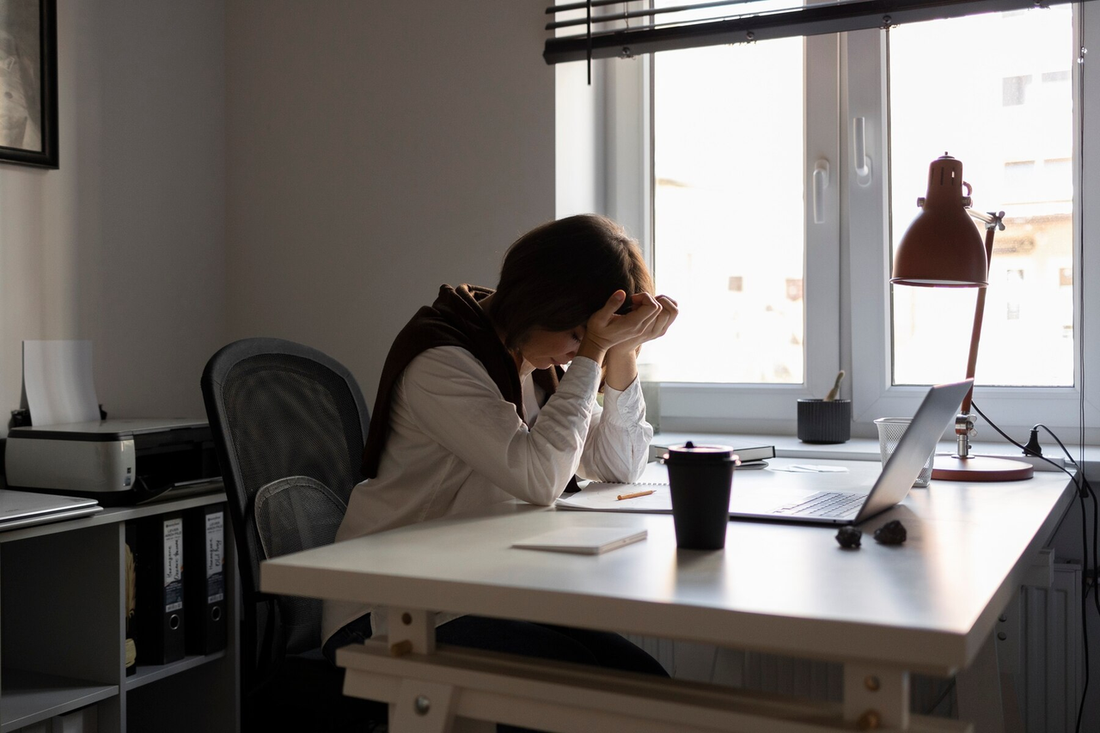Anxiety is a natural response to stress, but when it becomes overwhelming or persistent, it can interfere with daily life. Recognizing the signs of anxiety and knowing how to manage it is crucial for maintaining mental and physical well-being. Here's a guide to help you understand and cope with anxiety effectively.
Recognizing the Signs of Anxiety
1. Physical Symptoms:
Anxiety can manifest through various physical symptoms, including increased heart rate, sweating, trembling, dizziness, headaches, and gastrointestinal issues like nausea or stomach pain. Muscle tension and fatigue are also common.
2. Emotional Symptoms:
Emotionally, anxiety can cause feelings of restlessness, irritability, and a sense of impending doom. You may experience excessive worry about everyday situations and find it difficult to control these worries.
3. Behavioral Symptoms:
Behavioral signs include avoiding situations that trigger anxiety, experiencing difficulty concentrating, and having trouble sleeping. You might also notice a tendency to overthink or engage in compulsive behaviors to alleviate anxiety.
4. Cognitive Symptoms:
Cognitive symptoms of anxiety involve persistent negative thoughts, fear of losing control, and a constant state of alertness. These thoughts can be intrusive and interfere with your ability to focus on tasks.
Managing Anxiety
1. Breathing Exercises:
Deep breathing exercises can help calm the nervous system. Practice slow, deep breaths, inhaling through your nose for a count of four, holding for a count of four, and exhaling through your mouth for a count of four.
2. Mindfulness and Meditation:
Mindfulness and meditation techniques can reduce anxiety by helping you stay present and focused. Apps and guided meditations can be helpful tools to get started with these practices.
3. Physical Activity:
Regular exercise can reduce anxiety by releasing endorphins and providing a healthy outlet for stress. Activities like walking, running, yoga, and swimming are particularly beneficial.
4. Healthy Lifestyle Choices:
Maintaining a balanced diet, getting adequate sleep, and limiting caffeine and alcohol intake can help manage anxiety. Hydration and avoiding processed foods also contribute to overall well-being.
5. Cognitive-Behavioral Therapy (CBT):
CBT is a type of therapy that helps you identify and change negative thought patterns that contribute to anxiety. Working with a therapist, you can develop coping strategies and learn to reframe anxious thoughts.
6. Social Support:
Talking to friends, family, or a support group can provide emotional support and practical advice for managing anxiety. Sharing your experiences with others can reduce feelings of isolation.
7. Relaxation Techniques:
Progressive muscle relaxation, aromatherapy, and listening to calming music are effective ways to reduce anxiety. These techniques can help relax the mind and body.
8. Professional Help:
If anxiety is severe or persistent, seeking professional help from a mental health professional is essential. Therapists and counselors can offer specialized treatment plans, and medications may be prescribed if necessary.
Practical Tips for Managing Anxiety
1. Establish a Routine:
Having a structured daily routine can provide a sense of stability and control, which can reduce anxiety. Plan your day to include time for work, relaxation, and physical activity.
2. Set Realistic Goals:
Break tasks into smaller, manageable steps and set achievable goals. This can prevent feelings of being overwhelmed and reduce anxiety.
3. Limit Exposure to Stressors:
Identify and limit exposure to triggers that increase your anxiety. This might involve setting boundaries with people, reducing screen time, or avoiding certain situations.
4. Practice Self-Care:
Engage in activities that you enjoy and that help you relax. This can include hobbies, reading, spending time in nature, or taking a bath.
5. Keep a Journal:
Writing down your thoughts and feelings can help you process emotions and identify patterns in your anxiety. Journaling can be a therapeutic way to express yourself and track your progress.




